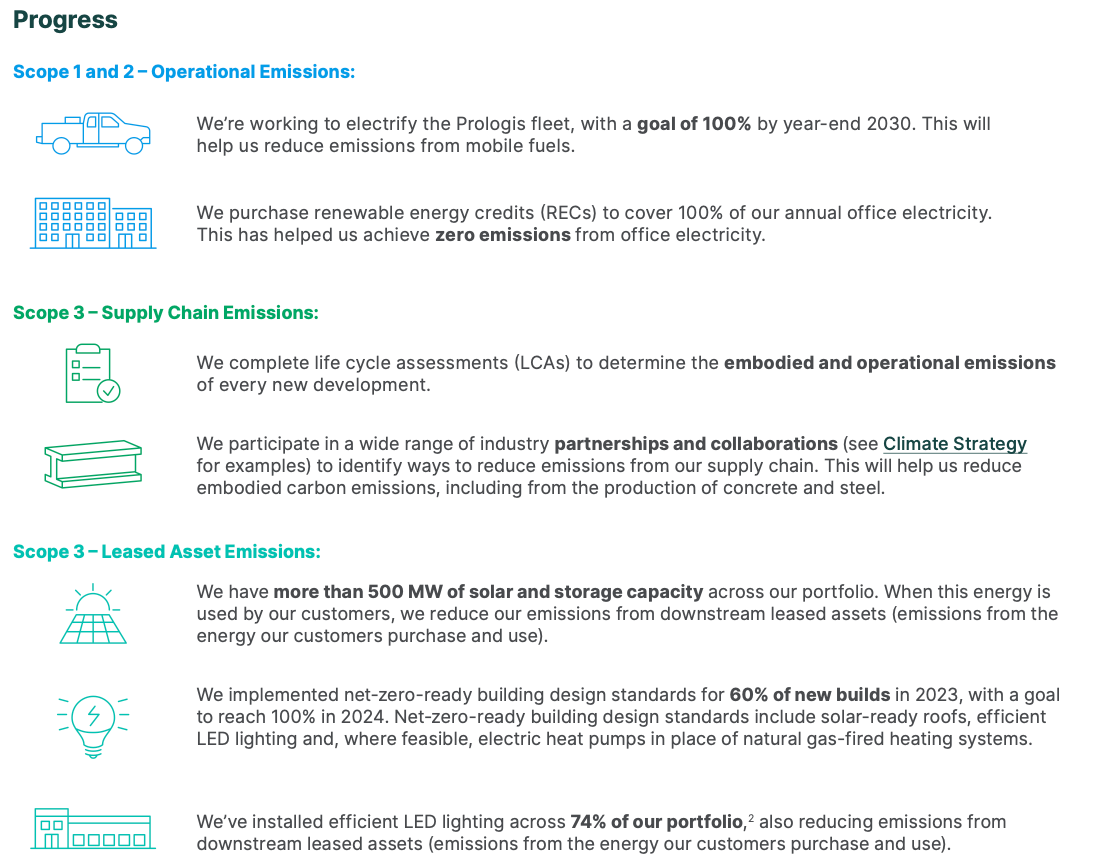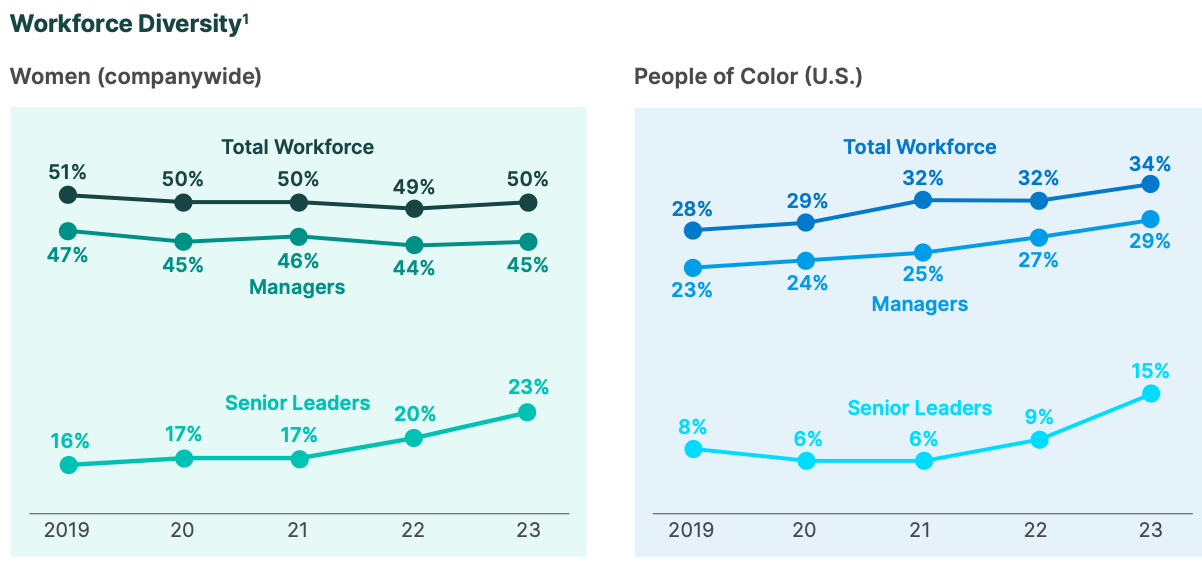CEF Lead Executives
-
JOHN HOEKSTRAItem Link List Item 1
SVP, Global Sustainability
John oversees the strategic direction and implementation of sustainability initiatives across the company’s extensive 1.2 billion square foot industrial real estate portfolio globally. In this capacity, he works closely with Prologis customers to support their sustainability goals while advancing efforts to reduce the company’s carbon footprint in alignment with its commitment to achieve net zero emissions by 2040. John leads the strategic deployment of sustainable practices for customers, identifying opportunities for onsite solar, energy storage, fleet electrification, and sustainable building solutions. He also manages the integration of digital technologies to optimize energy efficiency, increase company ESG performance, and drive the adoption of emerging technologies across Prologis’ portfolio and our customers. John has over 20 years of experience spanning roles at Schneider Electric, Dell Computer, E.I. DuPont de Nemours, and Brown-Forman. His tenure at Schneider Electric included leading sustainability and renewable energy advisory practices serving the Fortune 500. John holds a bachelor’s degree in chemical engineering from the University of Louisville and is a registered professional engineer.
-
SUZANNE FALLENDERItem Link
VP, Global ESG
Suzanne leads Prologis’ global ESG strategy, public reporting, and strategic initiatives to elevate the company’s leadership in ESG and sustainable logistics. Working with groups across Prologis, Suzanne and her team advance the integration and scale of sustainability and social impact strategies and goals, including Prologis’ net zero goal. She proactively engages with investors and other stakeholders on ESG, and partners closely with the company’s finance, governance, operations and IT teams on integrated ESG reporting and data strategies. Suzanne also serves on the board of the Prologis Foundation. Prior to joining Prologis, Suzanne served as global director of corporate responsibility at Intel Corporation and as vice president at Institutional Shareholder Services where she led the firm’s social investment research division. Suzanne holds an M.B.A. from the W.P. Carey School of Business at Arizona State University and a B.A. from Trinity College in Hartford, CT. She has served on multiple industry advisory boards over the past decade, and currently serves on the board of the non-profit Net Impact.
-
ALLISON SCHWEIZERItem Link
Global Energy & Sustainability Program Manager
-
SAMANTHA KLUGItem Link
Enterprise Sustainability Director
-
MELCHERT DUIJVEItem Link
Global Enterprise Sustainability Director
-
MADDIE STOEHRItem Link
Global Energy & Sustainability Associate
Latest Sustainability Reporting
(June 2024)
Highlights
- In 2023, reduced Scope 1 emissions by 25%, Scope 2 emissions by 99% and Scope 3 emissions by 29% (2019 baseline).
- Reached 506 MW of onsite solar generating and energy storage capacity in 2023.
- Net-zero goal was validated by the Science Based Targets initiative in 2024.
- Achieved or in progress of achieving sustainable building certifications for 96% of eligible projects.
- Installed LED lighting in 74% of its portfolio, on track to its goal of 80% by 2025.
- The company’s Eindhoven DC4 warehouse in the Netherlands received a Zero Carbon Certification from the International Living Future Institute, a first for an industrial building.
- Donated $3 million to Morehouse College to create an endowed fund for the new Morehouse Real Estate Institute, supporting diversity in real estate.
- Increased the diversity of senior leadership by 6% for women globally, and 9% for people of color in the U.S. since 2021.

Recent News
2025
CORPORATE KNIGHTS — Published its 2025 Global 100 List, ranking the world’s most sustainable companies (with revenues of over $1 billion) along 25 indicators. For the companies in the Top 100 in 2025, 53% of their total revenue was sustainable as was 58% of their total investments. This compares to 15% of total revenue and 15% for total investments for the 8,259 other publicly traded companies with revenues of over $1 billion. The top ranked company was CEF Member Schneider Electric, moving up from #7 in 2024. Other CEF Members in the Top 100 included Trane Technologies (#26), Cisco (#54), SAP (#58), Prologis (#63), Apple (#69), Unilever (#71), and HP Inc. (#79). (Jan 2025)
2024
Powering America’s Commercial Transportation (PACT) — This new coalition will focus on education and advocacy to support the deployment of commercial zero-emission vehicle (ZEV) infrastructure in the U.S. for medium- and heavy-duty (M/HD) ZEVs. Established by Daimler Truck North America, Navistar, Inc., and Volvo Group North America (which represent 70% of new M/HD truck sales), the coalition is open to all stakeholders interested in accelerating the deployment of zero-emission commercial vehicles. CEF member Prologis is also a founding member. (Feb 2024)
CORPORATE KNIGHTS — Released its 20th annual Global 100 List, ranking the world’s most sustainable companies along 25 indicators, out of 6,000 public companies with revenues of over $1 billion. In 2024, top-ranked firms allocated 55% of their investments to sustainable projects, up from 47% last year, and compared to just 17% of investments of publicly traded companies with more than $1 billion in revenue. The top ranked company was Sims Ltd, an Australian waste management company that moved up from #14 in 2023. CEF Members in the Global 100 include: Schneider Electric (#7), Trane Technologies (#23), Cisco (#64), HP Inc. (#67), Apple (#71), Unilever (#76), Hewlett Packard Enterprise (#81), and Prologis (#87). (Jan 2024)
2023
Joined the CEF member network in August 2023!
2022
Announced its commitment to achieve net zero emissions across its value chain (Scopes 1-3) by 2040. The commitment—which contains interim targets to achieve a) 1 gigawatt of solar generation capacity, supported by storage, by 2025; b) carbon-neutral construction by 2025; and c) net zero for operations by 2030—has been submitted to the Science Based Targets initiative (SBTi) for validation. (June 2022)
2021
“Retail Carbon Footprints: Measuring Impacts from Real Estate and Technology” (MIT and Prologis) finds that carbon emissions from online shopping are 36% lower on average than those produced by in-store trips. The report also found that a full standard delivery van can replace more than 100 individual car trips to a store, with fleet electrification increasing this advantage further. (January 2021)
How can we help? Please reach out to us!
Laura Keenan, Chair
laura@corporateecoforum.com | (617) 921-2307
Amy O’Meara, Executive Director
amy@corporateecoforum.com | (857) 222-8270
Mike Rama, Deputy Director
mike@corporateecoforum.com | (607) 287-9236
Margaret Zamoyta, Program Lead
margaret@corporateecoforum.com I (917) 678-4161
MR Rangaswami, Founder



